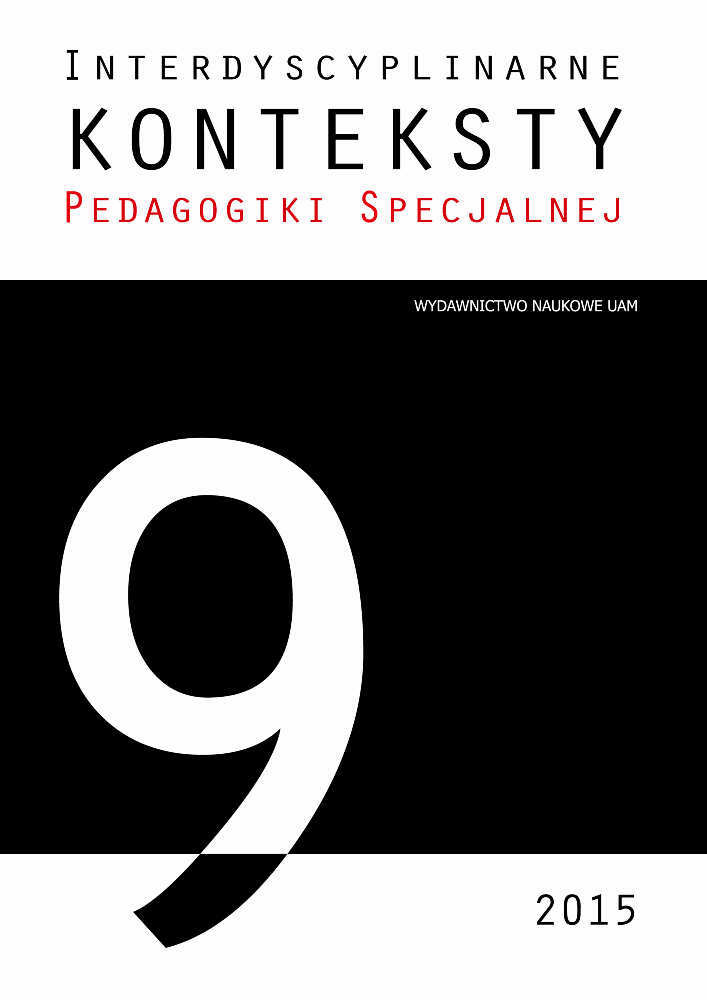Abstract
The article analyzes occurrences related to conducting classes for “seniors 50+”, targets of the design of such an offer and the strengths and weaknesses of this approach. These issues are considered in the context of the theory associated with aging, as well as with the changes which are taking place in society. In conclusion it has been shown that these activities can play a preventive and developmentoriented function.References
BALTES P.B., BALTES M.M., Psychological perspectives of successful aging: the model of selective optimization with compensation, [w:] Successful aging. Perspectives from the behavioral sciences, The European Science Foundation, red. P.B. Baltes, M.M. Baltes, 1993.
BALTES M.M., LANG F.R., Everyday functioning and successful aging: the impact of resources, “Psychology and aging”, 12(3), 1997.
BALTES P.B., REESE H.W., LIPSITT L.P., Life-Span Developmental Psychology, “Annual Review of Psychology”, 31, 1980.
FREUND A.M., BALTES P.B., Selection, optimization, and compensation as strategies of life management: correlations with subjective indicators of successful aging, “Psychology and Aging, 4”, 1998.
FREUND A.M., BALTES P.B., Life-menagement strategies of selection, optimization, and compensation: measurement by self-report and construct validity, “Journal of Personality and Social Psychology”, 82(4), 2002.
HASSE C.M., HECKHAUSEN J., WROSCH C., Developmental regulation across the life span: toward a new synthesis, “Developmental Psychology”, 49(5), 2013.
JOPP D., SMITH J., Resources and life-management strategies as determinants of successful aging: on the protective effect of selection, optimization, and compensation, “Psychology and Aging”, 21(2), 2006.
KONIECZNA-WOŹNIAK R., Uniwersytety Trzeciego Wieku w Polsce. Profilaktyczne aspekty edukacji seniorów, Wydawnictwo Eruditus, Poznań 2001.
OUWEHAND C., DE RIDDER D.T.D., BENSING J.M., A review of successful aging models: Proposing proactivecoping as an important additional strategy, “Clinical Psychology Review”, 27(8), 2007.
RYFF C.D., SINGER B.H., Know thyself and become what you are: a eudaimonic approach to psychological well-being, “Journal of Happiness Studies”, 9, 2008.
SIENKIEWICZ-WILOWSKA, J.A., Samopoczucie w okresie późnej dorosłości u uczestników terapii zajęciowej w Dziennych Domach Pomocy Społecznej, „Studia Psychologiczne”, 51(3), 2013.
SOLARCZYK-AMBROZIK, E.. Przemiany współczesnego świata – globalne wyzwanie edukacyjne, [w:] Kształcenie ustawiczne w warunkach globalizacji i rozwoju społeczeństwa informacyjnego, red. A. Zwierzchowska, Instytut Wiedzy, Warszawa 2002, dostęp na stronie www.instytut.info [20.03.2015].
SOLARCZYK-AMBROZIK E., Kształcenie ustawiczne w perspektywie globalnej i lokalnej, Wydawnictwo Naukowe UAM, Poznań 2004.
SOLARCZYK-AMBROZIK E., Uczenie się przez całe życie jako rzeczywistość edukacyjna. Dyskurs całożyciowego uczenia się w tle zmian społeczno-ekonomicznych, [w:] Całożyciowe uczenie się jako wyzwanie dla teorii i praktyki edukacyjnej, red. E. Solarczyk-Ambrozik, Wydawnictwo Naukowe UAM, Poznań 2013.
THIEME F.. Alter(n) in der alternden Gesellschaft: Eine soziologische Einfuehrung in die Wissenschaft vom Alter(n), Springer-Verlag 2008.
URRY H.L., GROSS J.J., Emotion regulation in older age, “Current Directions in Psychological Science”, 19, 2011.
WILOWSKA J.A., Uczenie się od nauczyciela i od rówieśników w procesie edukacji artystycznej podejmowanej w okresie późnej dorosłości, [w:] Szanse rozwoju w okresie późnej dorosłości, red. A.I. Brzezińska, K. Ober-Łopatka, R. Stec, K. Ziółkowska, Wydawnictwo Fundacji Humaniora, Poznań 2007.
ZIĘBIŃSKA B., Uniwersytety Trzeciego Wieku jako instytucje przeciwdziałające marginalizacji osób starszych, Wydawnictwo Śląsk, Katowice 2010.
